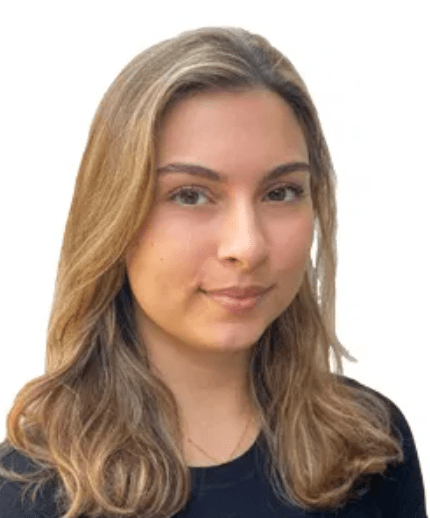“I have to drink cow pee?!”
Nine-year-old me glared up incredulously at my older brother, Tyler, who snickered, and with a devilish teenage grin, nodded his head — the answer was, unfortunately, yes.
“I did it and now so do you!”
Now, you may be thinking, what kind of cult is this girl in? Or maybe you’re thinking, does she actually drink cow pee? The short answer is no, I’m not in a cult and no, I didn’t actually drink cow pee — not pure cow pee anyway.
Article by Dina Katgara | Daily Californian
 I am a Zoroastrian. Zoroastrianism is the world’s oldest monotheistic religion. It originates from Persia, which is now mainly Iran today, in the 6th century B.C. In the simplest sense, Zoroastrianism revolves around its maxim of “Hû.mata, hüḵta, hvaršta,” which translates to “Good thoughts, good words, good deeds.” We celebrate two new years within one standard calendar year — also called Navrose — and worship in fire temples found all over the world.
I am a Zoroastrian. Zoroastrianism is the world’s oldest monotheistic religion. It originates from Persia, which is now mainly Iran today, in the 6th century B.C. In the simplest sense, Zoroastrianism revolves around its maxim of “Hû.mata, hüḵta, hvaršta,” which translates to “Good thoughts, good words, good deeds.” We celebrate two new years within one standard calendar year — also called Navrose — and worship in fire temples found all over the world.
When a Zoroastrian child is about 12, they are inducted into the religion. They have a Navjote ceremony, which is comparable to a Bat Mitzvah for a Jewish child. During the Navjote ceremony, children wear traditional Sudreh and Kusti attire and recite prayers from memory. These prayers are written in the ancient language of Avesta and need to be intensely studied before the day of Navjote. I remember my dad sitting with me for hours, helping me memorize the prayers and fully digest each line’s meaning.
Traditionally, before the ceremony, the child drinks the notorious consecrated cow urine, Nirang, as a symbol of cleansing. But modern Zoroastrians drink a mixture of pomegranate juice with a drop of Nirang, as I did. This is just one step of the cleansing process, as children will also bathe beforehand to create a clean heart, mind and body to be ready to officially enter the religion.
I remember my Navjote vividly. I step onto the stage in front of the crowd wearing the traditional silk pants. The vibrations of the Avestan prayers leave my lips and I smell the cardamom, cinnamon and sandalwood in the air. I am comforted by my ties to India. I glance at my mom and am reassured by the ties to my home in the United States as well.
With my mother being a Christian and my father being a Zoroastrian, the calendar seems to have smaller gaps between holidays. I eat home-cooked meals around an evergreen tree adorned with multicolored lights, but also enormous feasts with aunties kissing my face saying, “Navroz Mubarak!”Although most people would love having extra celebrations, I can honestly say it’s not all sweet as kulfi and peppermint sticks.
Whenever the impending question of my religious beliefs arises in polite conversation, I’m greeted by the confused echoes of “Huh? Zoro-rara-his-zism?” I understand their perplexity: Despite overenthusiastically butchering the pronunciation, everyone is curious about things they have not heard of before.
In high school, I felt alone. Even though the United States is known to be a melting pot of cultures and religions, I was the only Zoroastrian in my high school and am one out of about 14,000 Zoroastrians in the country. To my emotional high school self, having to defend myself every time someone gave me a weird look after hearing about my religion was exhausting.
Coming to UC Berkeley has allowed my horizons to broaden. More often than not, students and professors have ample knowledge about Zoroastrianism. My best friend here at UC Berkeley even went as far as to take an entire course on my religion. People are more aware that there is not a “default” religion and that there is a myriad of cultures, beliefs and religions that deserve respect. I love how infectiously passionate about inclusion students here are; they inspire me to further develop my interest in other cultures as well. I can’t help but imagine how our world would look if we all had equal knowledge of all cultures and their histories, rather than the limited information from whitewashed textbooks.
I used to believe that my religion was more a curse than a blessing. I think that young people have a tendency to overthink, compare and ultimately feel self-conscious about what makes them different. There comes a moment in everyone’s life where you have to find acceptance in your quirks. Tradition is sacred and it’s a blessing to be able to partake in a religion that was practiced thousands of years ago. It reminds me of the unbreakable thread of humanity that unites us all.
I truly accept that fitting in isn’t imperative to being successful. Today, I look inward and no longer notice divisions; I see a global citizen ready to share these unifying ideas, learn, create, edit, publish, speak and succeed. I am a mosaic made up of my many ancestral experiences, beliefs and traditions. I will forever be proud of that.
